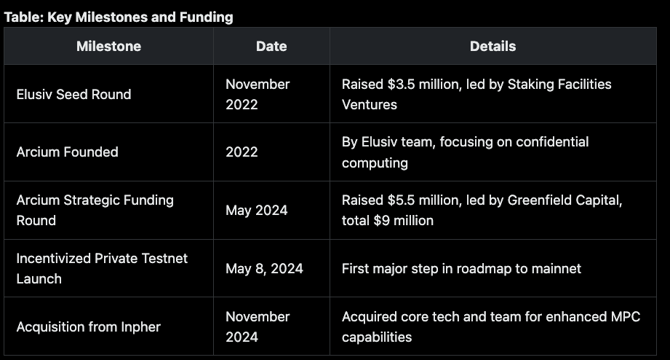Medium
2w
394

Image Credit: Medium
Unveiling Arcium: A Journey Through the Evolution and Impact of Confidential Computing Technology
- Arcium's technology focuses on enabling computation on encrypted data using Multi-Party Computation (MPC) and MXEs, ensuring privacy by keeping inputs private.
- Arx nodes power the network, running arxOS for coordinating computations, with developers using Arcis to write secure applications in a Rust-based language.
- Applications span healthcare for secure data sharing, finance for confidential transactions, AI for encrypted model training, and supply chain for data integrity.
- Origins trace back to Elusiv's privacy focus on Solana transactions, transitioning into Arcium, a global supercomputer for encrypted computations.
- MPC forms the core of Arcium's technology, supported by MXEs configurable for various trust assumptions, combining MPC, FHE, and ZKPs.
- The architecture is chain-agnostic, with Solana for on-chain management, supporting parallel execution for high throughput and scalability.
- Key features include parallel execution, configurable setups, hardware acceleration, and a compiler supporting different protocols for secure computations.
- Real-world applications include secure data sharing in healthcare, confidential transactions in finance, and privacy-preserving AI in machine learning.
- Challenges include cryptographic complexity, regulatory uncertainty, and performance concerns, with future plans for multichain expansion and AI enhancements.
- Compared to competitors like Oasis, Arcium's use of MPC and Arx nodes offers advantages in scalability and flexibility, positioning it well for broader adoption.
- Funding rounds totaling $9 million reflect investor confidence, with community engagement through platforms like Discord and GitHub encouraging developer participation.
Read Full Article
23 Likes
For uninterrupted reading, download the app